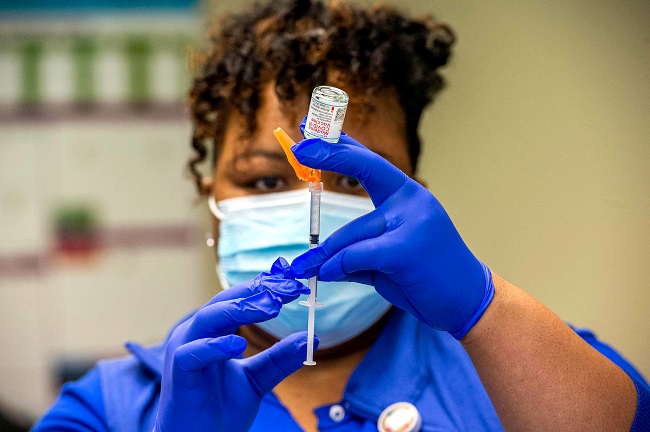Although some patients experience pain, exhaustion, or fever after receiving the COVID-19 vaccine, these reactions are often minimal and do not prevent them from receiving the dose.
However, there were reports of an expected side effect: a rare blood disorder—a condition termed immune thrombocytopenia (ITP)—which happened in a limited number of persons after obtaining their COVID-19 vaccine in February 2021. Continue reading for more information About the A Few Covid Vaccine Recipients Developed a Rare Blood Disorder.

Contents
A Few Covid Vaccine Recipients Developed a Rare Blood Disorder
ITP was one of the post-vaccination complications reported by The New York Times. As a result, the probable connection between ITP and the Pfizer and Moderna COVID-19 vaccines was the subject of an editorial in the February 2021 issue of the American Journal of Hematology. According to the study authors, it’s probable that the vaccine is to blame for ITP, but additional information is needed to draw firm conclusions.
Given the urgency of developing a vaccine against COVID-19, and the gravity of ITP, how concerned should you be about contracting ITP as a result of getting vaccinated? Everything you need to know is listed here.
What Is Immune Thrombocytopenia?
Thrombocytopenia is a medical term denoting low platelet count. Thrombocytes, or platelets, are a type of blood cell that allows blood to coagulate, the National Heart, Lung, and Blood Institute (NHLBI) notes. There are many forms of thrombocytopenia with distinct reasons.
According to the National Heart, Lung, and Blood Institute (NHLBI), immune thrombocytopenia (ITP) occurs when the body’s immune system mistakenly attacks and destroys its own platelets. “What happens is that, for an unknown reason, your immune system makes antibodies to platelets,” explained James Bussel, MD, professor emeritus of paediatrics at Weill Cornell Medicine in New York City and a leading researcher in the field, adding that there are several different theories about why that may happen. It’s been known to occur with other vaccines too, Dr. Bussel stated.
For those without a history of ITP, the potential benefits of the COVID-19 vaccine much outweigh the small chance of developing the condition after vaccination. Higher rates of ITP as a probable reaction to COVID-19 have been seen in people who did not receive the vaccine. Up to 10% of individuals with mild disease and 20% in those who are severely affected. Even though the risks are higher for people with a history of ITP, the vaccine is still recommended; those who fall into this category should talk to their haematologist and have a platelet count before taking the vaccine.
Today, the European Medicines Agency’s (EMA) safety committee (PRAC) reached the conclusion that Vaxzevria should carry a warning about an extremely rare side effect involving blood clots and low platelets (formerly COVID-19 Vaccine AstraZeneca). In reaching its determination, the committee took into consideration all currently available evidence, including the recommendations from an ad hoc expert group.
Last Words
The European Medicines Agency (EMA) wants healthcare providers and vaccine recipients to be on the lookout for extremely uncommon incidents of blood clots associated with low blood platelet levels within 2 weeks following vaccination. So far, most of the instances documented have occurred in women under 60 years of age within 2 weeks of immunisation. Based on the currently available research, particular risk factors have not been confirmed. Thanks for reading our article A Few Covid Vaccine Recipients Developed a Rare Blood Disorder.


